Citizen Journalism
The Legal Needs of Emerging Online Media: The Online Media Legal Network after 500 Referrals
California Judicial Council Recommends Repeal of Law Criminalizing Juror Internet Use
Instagram: Uncharted Territory for Courts and Journalists
DMLP Announcement: Video from Cambridge Community Television Event Goes Live
Who is a Journalist? Here We Go Again…
"Newsgathering in Massachusetts" Guide Now Available Online!
Saltsman v. Goddard
Citizen Counter-Surveillance of the Police? There's an App For That.
Is It a Prior Restraint for Police to Delete Video of Their Conduct?
Privacy v. Public Access in the Emerald City
Judge Explains His Decision on Blogger to the Chicken Littles
Antioch University v. The Antioch Papers
Tell Us, Judge Posner, Who Watches the Watchmen?
Righthaven's Copyright Trolling is a Bankrupt Idea
New California Law Prohibits Jurors' Social Media Use
Newsgathering Law: A Guide for Reporting
Announcing OpenCourt
Copyright 2007-25 Digital Media Law Project and respective authors. Except where otherwise noted,
content on this site is licensed under a Creative Commons Attribution-Noncommercial-ShareAlike 3.0 License: Details.
Use of this site is pursuant to our Terms of Use and Privacy Notice.
content on this site is licensed under a Creative Commons Attribution-Noncommercial-ShareAlike 3.0 License: Details.
Use of this site is pursuant to our Terms of Use and Privacy Notice.


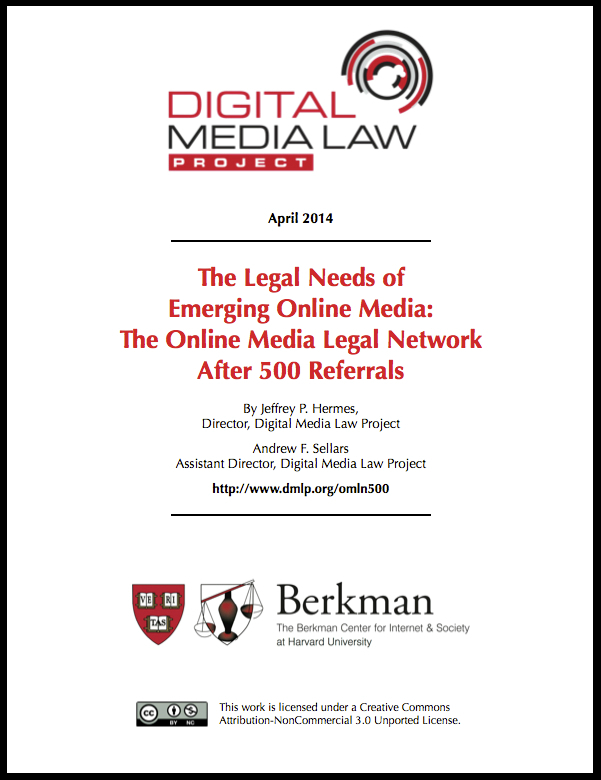
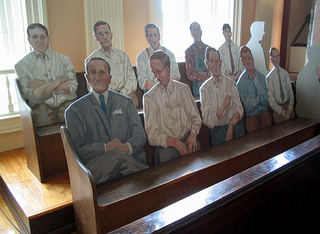 In August 2011,
In August 2011,  As a Los Angeles Superior Court prepares to break new ground concerning defamation on
As a Los Angeles Superior Court prepares to break new ground concerning defamation on  In May, the DMLP, with our good friends at the Harvard Law School
In May, the DMLP, with our good friends at the Harvard Law School  In the wake of the
In the wake of the 
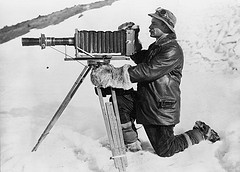 Despite the welcome 7th Circuit decision
in
Despite the welcome 7th Circuit decision
in  For the past few years here in Seattle, a fascinating debate has been brewing about the balance between government
transparency and citizens' privacy, particularly at the intersection of the state
Public Records Act and the state Privacy Act.
For the past few years here in Seattle, a fascinating debate has been brewing about the balance between government
transparency and citizens' privacy, particularly at the intersection of the state
Public Records Act and the state Privacy Act.
 Federal Judge Marco A. Hernandez got a lot of attention and cyberchatter late last year when he held that blogger
Federal Judge Marco A. Hernandez got a lot of attention and cyberchatter late last year when he held that blogger 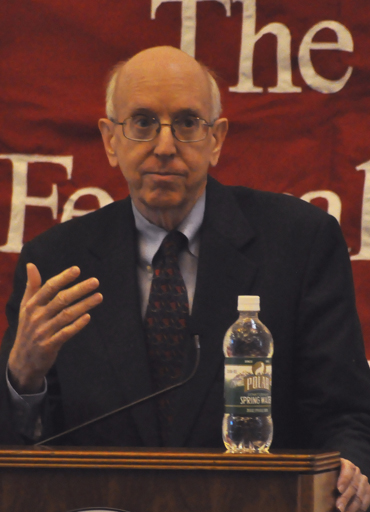 In what is now their
In what is now their  It’s been
It’s been 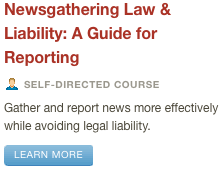
 A few days ago, I attended oral arguments before the First Circuit Court of Appeals in the case of Joel Tenenbaum, a graduate student being sued by various record labels for sharing music files via a peer-to-peer service over the Internet (Sony v. Tenenbaum,
A few days ago, I attended oral arguments before the First Circuit Court of Appeals in the case of Joel Tenenbaum, a graduate student being sued by various record labels for sharing music files via a peer-to-peer service over the Internet (Sony v. Tenenbaum, 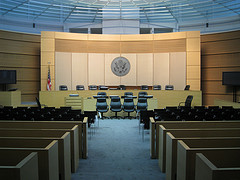 The
The 
Description:
In August 2012, two football players from Steubenville High School were arrested and charged with the rape of a 16-year-old girl. Classmates circulated Twitter posts, videos, and photographs indicating that the players may have carried the girl, unconscious, from party to party and sexually assaulted her while others watched. A police investigation uncovered pictures of the girl, naked and apparently unconscious, from partygoers' phones.
Cody Saltsman, a football player who was not indicted, tweeted a picture of the girl looking unresponsive as two boys carry her by her wrists and ankles. He also tweeted comments about the girl, including the phrases "whore status," "sloppy," and "I have no sympathy for whores."
Alexandria Goddard, a blogger who writes under the pseudonym "Prinnie" at prinniefied.com, wrote a series of blog posts on the case. She posted screen shots of related Twitter posts and photos. She also suggested that a number of unindicted individuals had participated in the rape, including Cody Saltsman. In response to a comment on her blog reading "students by day ... gang rape participants by night," Goddard wrote, "Cody Saltsman [is] playing tonight. Reno, SHAME ON YOU." She also wrote that his fellow football players should "roll on their pal Cody Manson" and "[p]erhaps when scumbag is finally arrested I will post a picture of him for his mother that says ‘How do you like your scumbag son now?' ... Tell Cody not to feel too bad, he is not the lone asshole in all this."
A number of commenters on the blog also posted about Saltsman, including statements that he was there when the rape was occurring, that he was the "mastermind" behind the crime, that he had previously stated he would "ruin that bitch," and that he had sent the victim's father the picture of her being carried by her wrists and ankles with text reading "look at your whore daughter now." Other commenters made comments including: "[g]et CS and his posy [sic] off the field and problem solved"; "Cody needs to suffr some consequences too!"; and, in response to the question "[w]hat is [the Saltsman's] business because I never want to spend money there," the statement "CS father owns Fort Steuben Plumbing/Maintenance."
On October 25, 2012, Saltsman and his parents, James and Johna Saltsman, filed a complaint against Goddard, fifteen anonymous commenters identified by screen names and Internet Protocol (IP) addresses (including those who made the above statements), and ten additional John Doe defendants. Saltsman sued for defamation and intentional infliction of emotional distress, and sought injunctive relief, compensatory damages in excess of $25,000, and punitive damages. The complaint was amended on November 19, 2012 to add claims for false light and spoliation of evidence.
Saltsman's attorneys obtained the IP addresses for each anonymous commenter from HostGator, the Internet Service Provider (ISP) for the "prinnified" blog, which apparently turned over the IP addresses without providing notice to the commenters or to Goddard. On November 16, the plaintiffs moved for authorization to conduct discovery from each anonymous commenter's ISP in order to obtain the commenters' identities.
Goddard's counsel objected to Plaintiffs' motion for authorization to conduct discovery to obtain the identities of the anonymous defendants, asserting that the First Amendment right to speak anonymously barred such discovery.
In a supplemental memo supporting the motion for authority to conduct discovery, Saltsman disputed that the First Amendment protected the identities of the authors, urged the court to act quickly in order to prevent the ISPs from deleting relevant information, and argued that Goddard had no standing to object on behalf of the Does.
Acknowledging that there were no published Ohio decisions on point, Saltsman directed the court to the often-followed test laid out in Dendrite Int'l Inc. v. Doe No. 3. 775 A.2d 756 (N.J. Super. A.D. 2001). Under Dendrite, courts allow plaintiffs to conduct discovery on anonymous online posters' identities when plaintiffs (1) attempt to notify defendants that their identities are being sought and explain how to present a defense; (2) quote verbatim the allegedly actionable online speech; (3) allege all elements of the cause of action; (4) present evidence supporting the claim of violation; and (5) show that, on balance and in context, the plaintiff's right to identify the speaker in order to redress alleged wrongs outweighs the First Amendment right to anonymous speech. Saltsman asserted that he met all of these elements, particularly focusing on the fifth element, the balancing of rights. Because the First Amendment does not protect false assertions of fact, he argued, the defendants had no right to anonymous speech in this context.
Goddard filed a Memorandum in Opposition to the motion on November 21, and a supplemental Memorandum in Opposition on November 26. Plaintiffs' responded with a second supplemental memorandum in support of their motion on November 28.
The Court filed an order on November 29, granting the plaintiffs' motion. The court authorized the relevant ISPs to release personally identifiable information associated with the IP addresses identified in the complaint. The court required that notice of the discovery be given to the anonymous commenters and that the commenters be given fourteen days after the notice to file motions to quash.
On December 14, the American Civil Liberties Union of Ohio stated in a press release that they had offered to represent a number of the "John Doe" defendants. ACLU Volunteer Attorney Scott Greenwood stated, "[w]e believe the real goal of this lawsuit is to discover the identity of anonymous online commenters so that they, and future commenters will be intimidated and discouraged from voicing their opinions. This is just an updated form of a classic Strategic Lawsuit Against Public Participation (SLAPP) which is typically used to silence speech that is protected under the First Amendment."
Plaintiffs reached a settlement with Goddard and the anonymous commenters and voluntarily dismissed the case with prejudice on December 27, 2012. With one exception (defendant Waguespack), the identities of the commenters were not disclosed. No money was exchanged, and Goddard did not retract any statements or agree to stop covering the case. Goddard did write on her blog that she "never had any evidence of [Cody Saltsman's] direct involvement" in the events of the night and agreed to give him space on her blog to present his side of the story.
The "prinnified" blog also ran the following statement from Cody Saltsman: "I deeply regret my actions on the night of August 11, 2012. While I wasn't at the home where the alleged assault took place, there is no doubt that I was wrong to post that picture from an earlier party and tweet those awful comments. ... At no time did my family mean to stop anyone from expressing themselves online - we only wanted to correct what we believed were misstatements that appeared on Ms. Goddard's blog. "